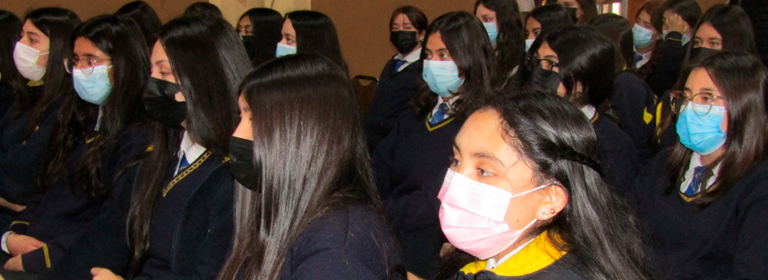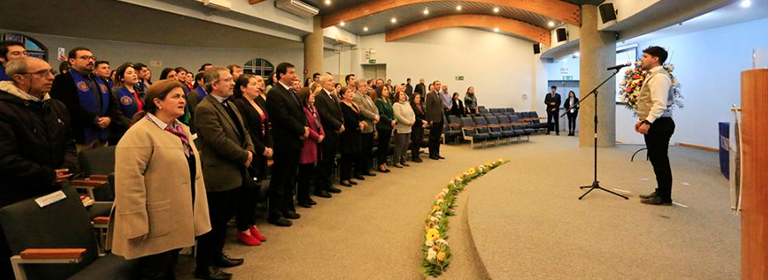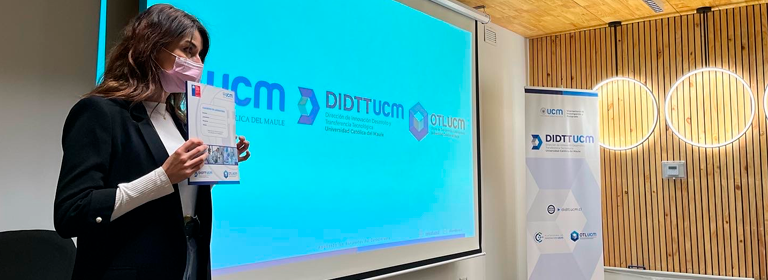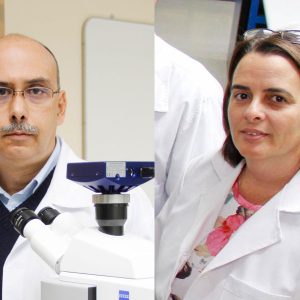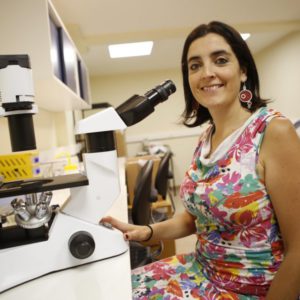Karina Vilches, Director of Postgraduate Studies of the Universidad Católica del Maule, spoke about the gender imbalance that affects research and the myths that make it difficult for girls to imagine themselves in scientific professions.
 Science is not just for boys. That was the message delivered by the director of Postgraduate Studies of the Universidad Católica del Maule, Karina Vilches, to the students of the Liceo Santa Marta in Talca, in a talk to commemorate the Humanist Scientist Day.
Science is not just for boys. That was the message delivered by the director of Postgraduate Studies of the Universidad Católica del Maule, Karina Vilches, to the students of the Liceo Santa Marta in Talca, in a talk to commemorate the Humanist Scientist Day.
«The idea of the presentation was to show how gender bias affects the different areas of scientific work, including the results of science,» said the PhD in Engineering Sciences.
“There are cultural stereotypes that are ingrained in our society, regarding the roles that men and women must fulfill; women always pointing towards taking care of the rest and therefore towards careers such as Nursing and Pedagogy, without seeing that we can also develop knowledge from Engineering and Mathematics”, she stated. Vilches also pointed out that «there are family taboos, which indicate that some professions or a scientific career are not compatible with family life”.
According to the report «The State of Science 2020» of the Organization of Ibero-American States, only three out of ten researchers in the world are women, who also represent only 13% of the people who pursue STEM careers (science, technology, engineering and mathematics). Vilches explained that “we have to encourage more women to pursue scientific careers, considering that the UN and the ILO say that 75% of jobs by 2050 will have a strong scientific, mathematical and computational base. So if we don’t encourage girls to enter careers of this type now, what we are going to do is project them into a life with less access to comforts and quality of life”.
For the school’s director, Teresa Aceituno, the Humanist Scientist Day is an opportunity to inspire the students.
«It allows us to recall the importance and activity of this specialty, which for 39 years has been focused on the task of preparing our students to enter and succeed in the university world,» she said.
 The activity included a round table of former students, who recounted their university and professional experiences, and the testimony of Aparna Banerjee, Ph.D. in Botany and member of the Center for Research in Advanced Studies (CIEAM for its acronym in Spanish) of the UCM.
The activity included a round table of former students, who recounted their university and professional experiences, and the testimony of Aparna Banerjee, Ph.D. in Botany and member of the Center for Research in Advanced Studies (CIEAM for its acronym in Spanish) of the UCM.
“I was born in India, in a city called Asansol, near Calcutta. There is always a gender problem and probably in Asia a little more, because of sexism. But I told the girls, as a woman and a scientist, that if I want, I can,» said Banerjee.

